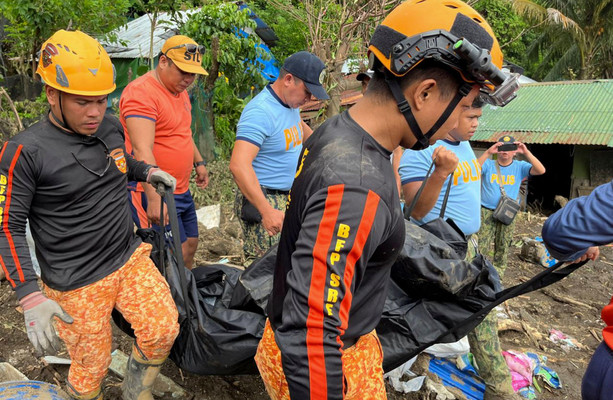Judge orders Virginia to restore registration of more than 1,600 voters Newslooks Washington, D.C. Mary Sidiqi Evening Edition A federal judge has ordered Virginia to reinstate the registrations of more than 1,600 voters who she ruled were unlawfully canceled during the restricted period leading up to the November election. The Justice Department argued that the purge violated federal protection laws prohibiting large-scale changes to voter rolls before an election. The ruling was met with criticism, with Virginia’s governor and attorney general expressing concerns about restoring the registrations of voters flagged as noncitizens, while others argued the purge illegally disenfranchised eligible voters.
Judge orders Virginia to reinstate 1,600 canceled voter registrations: A quick look
- federal ruling: Judge Patricia Giles ordered Virginia to restore the registrations of more than 1,600 voters, citing federal law prohibiting mass changes to voter rolls before an election.
- DOJ cases: The Justice Department argued that the cancellation of election results was illegal and occurred during a “quiet period” intended to protect voters from wrongful disenfranchisement.
- national defense: Virginia officials said only self-identified noncitizens will be affected, and they will be flagged based on Department of Motor Vehicles (DMV) data and notified before eviction.
- Plaintiff’s argument: Voter advocates noted that many of the removals may have been errors and could have affected U.S. citizens who were wrongly labeled as non-citizens.
- Governor’s response: Gov. Glenn Youngkin defended the executive order, saying it upheld voter integrity, while Rep. Gerry Connolly praised the ruling for safeguarding voting rights.
A closer look:
The case centers on Virginia’s recent changes to its voter roll maintenance practices. In August, Gov. Glenn Younkin issued an executive order requiring the state to cross-check daily DMV records with voter rolls to identify potential noncitizens. Officials claim the policy is intended to protect the integrity of elections by ensuring only eligible U.S. citizens can vote. Under the new system, if someone shows up as a noncitizen in DMV data, they will be notified and given two weeks to provide proof of citizenship. If they fail to provide it, their voter registration will be cancelled.
However, the timing of the executive order raises legal concerns. Federal law prohibits states from making broad changes to voter rolls in the 90 days before an election to prevent eligible voters from being inadvertently removed as voting day approaches. In his ruling, Judge Giles noted that the VA did not provide clear evidence that the delisted individuals were actually noncitizens. She added that delisting during the silent period should be done on an individual basis rather than through mass delisting, which could disenfranchise legitimate voters.
In court, Justice Department attorney Sejal Jhaveri emphasized that federal regulations are designed to prevent large-scale revisions to voter rolls before elections, thereby reducing the risk of erroneous cancellations that could affect eligible citizens. Many individuals removed from the rolls may have lost their right to vote due to simple errors or accidental misclassification by the DMV, according to the Department of Justice and groups such as the League of Women Voters. For example, a common mistake is to incorrectly check a box on a DMV form, which may incorrectly designate a U.S. citizen as a noncitizen.
Plaintiffs in the case point out, however, that Virginia’s new approach based on DMV data is far from foolproof. While the exact number of U.S. citizens affected is unclear, plaintiffs have presented anecdotal evidence that some people were wrongly labeled as non-citizens and purged. Cooper acknowledged that the DMV data may not be foolproof, but he countered that restoring voting rights to all 1,600 voters would inevitably undermine the integrity of the election by putting some noncitizens back on the rolls.
Rep. Gerry Connolly, D-Va., who briefed Justice Department officials about the purge, praised the ruling as upholding the voting rights of eligible citizens in the state. “The governor’s policies have one goal: to disenfranchise legal voters. This ruling is a victory for democracy,” Connolly said in a statement.
Virginia’s Republican Attorney General Jason Miares sharply criticized the court’s ruling, calling it a “blow to voter integrity.” Miares argued in a statement: “It should never be illegal to remove illegal voters from the rolls. Today, the court undermines election security by forcing Virginia to reinstate non-citizens on the eve of the presidential election.” Former President Donald Trump also expressed displeasure, calling the ruling “a farce” and reiterating his belief that only citizens should have the right to vote.
Judge Giles’ order requires Virginia to restore voter registrations affected by the purge and notify those individuals within five days that their status has been restored. The notification letter will remind recipients that if they are indeed a noncitizen, they are prohibited from voting under federal law.
Although the plaintiffs asked for an extension of the time to reinstate voter eligibility to apply for absentee ballots, Giles refused, saying such an extension could confuse voters.
In a similar case, a federal judge in Alabama recently ruled that the state must reinstate more than 3,200 voter registrations that had been canceled for similar reasons, with court testimony showing that about 2,000 of those voters were actually legally registered citizens. .
The ruling sparked a national debate over the extent to which state efforts to prevent noncitizens from voting could jeopardize the rights of legal voters. Youngkin’s executive order also highlights a trend in which states increasingly check DMV and other government data against voter rolls — a practice that critics say often leads to errors and unwarranted disenfranchisement of citizens. Virginia has nearly 60,000 registered voters, and election administrators and legal experts are studying the impact of the court order, a ruling that could affect hundreds of thousands of people.
More information about the election


